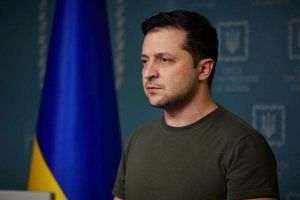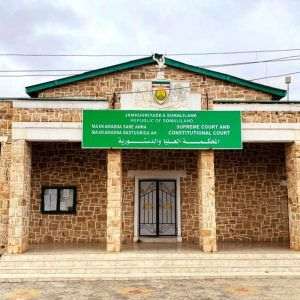The resolution adopted yesterday by the European Parliament requesting the Commission that, after the end of the conflict in Ukraine, in the negotiations with the Russian Federation, take steps to return the treasure of our country, which has been in Moscow since the First World War, is an inapplicable act in the next period. In order to be able to talk about a valid approach, Vladimir Putin and those around him - Medvedev, Lavrov and others - should be arrested and the presidential elections in Russia should not be won by an impersonator of them or of Liviu Dragnea, the former president of the PSD, who had some hidden thoughts with Romania's treasury kept at the National Bank of England.
Otherwise, the document voted by the European Parliament remains a worthless one, and the 91.5 tons of fine gold not returned by Moscow, which should be part of the reserves of the National Bank of Romania, remain deeply hidden in the Kremlin's vaults, to which they have access only Vladimir Putin and his shadow.
In the opening of the debate, Elisa Ferreira, European Commissioner for Cohesion Policy, said that Romania's request concerns its relations with the Russian Federation, but that the Brussels Executive will side with our country, if negotiations take place after the end of the war in Ukraine and a process of dialogue with representatives of power in the Kremlin.
Elisa Ferreira stated: "Russia has a pattern of violating international law, and the war against Ukraine is a violation of international law, including the UN Charter and EU objectives regarding security and peace on the continent. Russia's political leadership must be held fully accountable for violations of international law and human rights. As long as the war in Ukraine continues, we cannot return to normal relations with the Russian Federation. The position of the European Commission is that the topic of Romania's treasury remains a bilateral matter between Romania and Russia, but we are ready to support the authorities in Bucharest, if they request us to do so. At the moment the political dialogue and negotiation mechanisms with Russia are suspended because of the war in Ukraine, but we are open to supporting the cause of the return of the treasure at the end of this conflict".
The initiator of this debate in the European Parliament, PMP leader, Eugen Tomac said that the resolution adopted yesterday represents a unique document for the European institution. Tomac stated: "Romania's gold is still seized in Russia today, it is a legal claim of Romania that Russia does not recognize, because the Kremlin authorities misinform and distort the past".
Social-democratic European deputy Rovana Plumb said that the treasury represents an old dispute between the two states, and bringing the topic to the agenda of the European Parliament is a political gesture. She stated that our country has a historically and legally valid claim on the treasure sent to Moscow.
Mrs. Plumb stated: "The USSR and Russia enjoyed and continue to enjoy the benefits of these values, whether material or spiritual. With this resolution, we create the premises that, if after the end of the war in Ukraine, there will be discussions between the EU and Russia, this topic will be on the agenda of the European Commission. Russia's non-return of the treasure represents an attack on national and European heritage. There is only one solution: for Russia to comply with its obligations".
• Kosma Zlotowski: "Russia is not only a terrorist state, but also a thief state"
The European deputy Vlad Botoş said that it is inadmissible for a country to seize the national treasure of another state and specified that the issue of the Romanian treasure seized in Moscow is unique in the world.
For his part, the European deputy Cristian Terheş requested the immediate and unconditional return by Russia of the Romanian treasure and forcing the Kremlin authorities to pay compensations and penalties up to date because Romania and its citizens could not enjoy the benefits of this treasure. Mr. Terheş showed that this subject is not unique in Europe, because after the Second World War Russia looted the heritage of other states in the east of the continent, such as Poland, Latvia, Lithuania and Estonia.
The former president Traian Băsescu showed in the European Parliament that through the adopted resolution the respective institution becomes part of the fight that Romania is waging for the recovery of the treasure, while the former prime minister Dacian Cioloş stated that Russia's lack of scruples must be answered firmly , and the European deputy Vlad Gheorghe declared that the forums in Brussels should confiscate all Russian funds and allocate them to the states that were robbed over the last century by the authorities in Moscow.
Kosma Zlotowski, MEP from Poland said that Russia is not only a terrorist state, but also a thieving state, through its attitude affecting many countries that saw themselves illegally deprived of many assets and treasures. Lithuanian MEP Ludas Mazylus said the theft of cultural and historical treasures has been a common Russian behavior since the Tsarist era, when important works were forcibly moved from Lithuania to Russia in the 19th century.
Ludas Mazylus: Stealing cultural and historical treasures is a common behavior of Russia since the Tsarist period when various works from Lithuania were stolen by Russia in the 19th century.
Maria Grapini, vice-president of the Internal Market and Consumers Committee, within the European Parliament, asked the European Commission to take into account the resolution approved yesterday, to implement it and not to consider it an unimportant document.
Other MEPs tried to change the meaning of the discussion, saying that other European countries should also return the looted goods, giving the example of France which returned only half of the works taken from other countries during the time of Emperor Napoleon. However, unlike this case, the case of the Romanian treasury is based on an agreement, an understanding between the leaderships of the two states in 1916, an agreement that was later no longer respected by Russia, regardless of who was in charge of this country.
• European Parliament: "Romania's Treasury from Moscow - an international case of illegal appropriation of gold reserves and heritage objects"
The respective document states that the said illegal confiscation of Romania's national treasure by Russia represents a flagrant violation of international norms and customs, as the transfer of the state's gold reserves, together with a substantial collection of cultural, artistic and archival assets, in the custody of another state for safe keeping, in exceptional circumstances, was covered by a formal agreement supported by appropriate protocol documents and legal guarantees of return whose stipulated obligations were ignored.
The quoted document states that "Romania has a fully valid claim on its gold reserves that were evacuated to Moscow in 1916 and 1917" and "bringing back the Romanian national treasure requires a customized European response", because it is about "a case of illegal appropriation of gold reserves and heritage objects".
The European Parliament notes that during the First World War, the Romanian government of the time legally gave the national treasure into the custody of Russia, a treasure that included 91.5 tons of fine gold belonging to the reserves of the National Bank of Romania, royal collections of jewels and rare coins, together with priceless cultural and historical assets, such as state archives, documents, precious historical manuscripts, heritage paintings, rare books and collections from many public and private institutions, covering over five centuries of Romanian history.
At the same time, the European deputies state that, although most of the cultural, artistic and archival assets belonging to the national treasure illegally appropriated by Russia were returned to Romania in 1935 and 1956, until now none of the outstanding 91.5 tons of fine gold, which are part from the reserves of the National Bank of Romania, was not returned.
Therefore, the European Parliament considers that the invasion of Ukraine by Russia must lead to a reassessment of EU-Russia relations in the future, which will include unprecedented dynamics and diplomatic requests, such as the return of the gold reserves allocated to the National Bank of Romania and "underlines that bringing back cultural property and national treasures of an EU member state that are illegally kept by a non-EU state requires substantial diplomatic dialogue, both bilaterally and in international fora".
At the end of the resolution, the European Parliament asks the European Commission and the European External Action Service to include the return of Romania's national treasure on the bilateral diplomatic agenda that regulates EU-Russia relations, once the regional context will allow the resumption of political dialogue between the parties and to take into account the possibility to act as a partner of the Romanian representatives involved in the Romanian-Russian Joint Commission mandated to discuss the return of the Romanian national treasure.
• Ambassador Valeryi Kuzmin: "The Russian Federation has no debt towards Romania"
We remind you that regarding Romania's treasure, Valeryi Kuzmin, the ambassador of the Russian Federation in Bucharest, declared last month that Romania's treasure will not be returned and that our country owes Russia and not the other way around. Kuzmin evoked a scene which, he says, took place between former Soviet leader Leonid Brezhnev and Nicolae Ceauşescu, in the 60s: "Comrades, Brezhnev would have said to Ceauşescu, I must tell you, as from communist to communist, that you must forget about the treasure. Because, as written in the legal documents, as a result of all the activities that fall under Romania's responsibility, Romania has a greater debt to Russia than Russia has to Romania. But we don't need this debt from you. We forgive you this debt."
We show that, at the time of our country's entry into the First World War, in September 1916 the National Bank of Romania took the first steps to shelter the gold treasure, and at the beginning of the winter of that year the government and the leadership of the National Bank of Romania decided to move the treasure to Russia , the only allied state with which Romania bordered at that time. The Romanian government and the representatives of the National Bank of Romania signed with the representative of the Russian Empire the convention in which the conditions for the first transport to Moscow were specified. According to the agreement signed in Iaşi, the Romanian values were "under the guarantee of the Russian government regarding the security of the transport, the security of the deposit, as well as the return to Romania". The first shipment took place in December 1916 and included 1,735 boxes with coins and three with gold bars from the Treasury of the National Bank of Romania and two boxes with Queen Mary's jewels. The BNR gold was worth 314.5 million lei, and the queen's jewelry - 7 million lei. The 1,740 cassettes were stored in the Kremlin, in the Armory Hall, in the compartment reserved for the Moscow Branch of the State Bank of Russia.
In the summer of 1917, the second transport to Moscow took place. This time, the train carried both values of the BNR and other institutions, including the Romanian Academy, the National Archives, ministries and churches. In the three wagons with NBR values, which were also stored in the Armory, in the Kremlin, there were "titles, effects, values, deposits, part of its archives and books, its documents, etc., as well as the gold part of the deposits his in metals, his private property". The total value of the second transport, from July 1917, was 7.5 billion lei. In total, in the two shipments, from December 1916 and July 1917, the National Bank of Romania deposited 91.48 tons of fine gold in Moscow.



















































